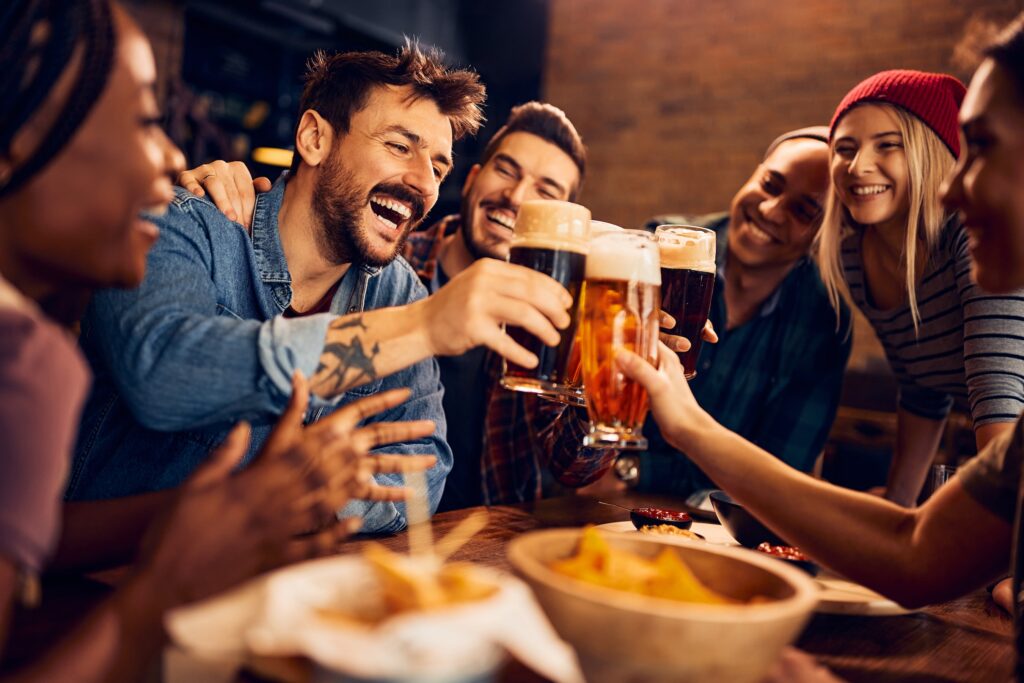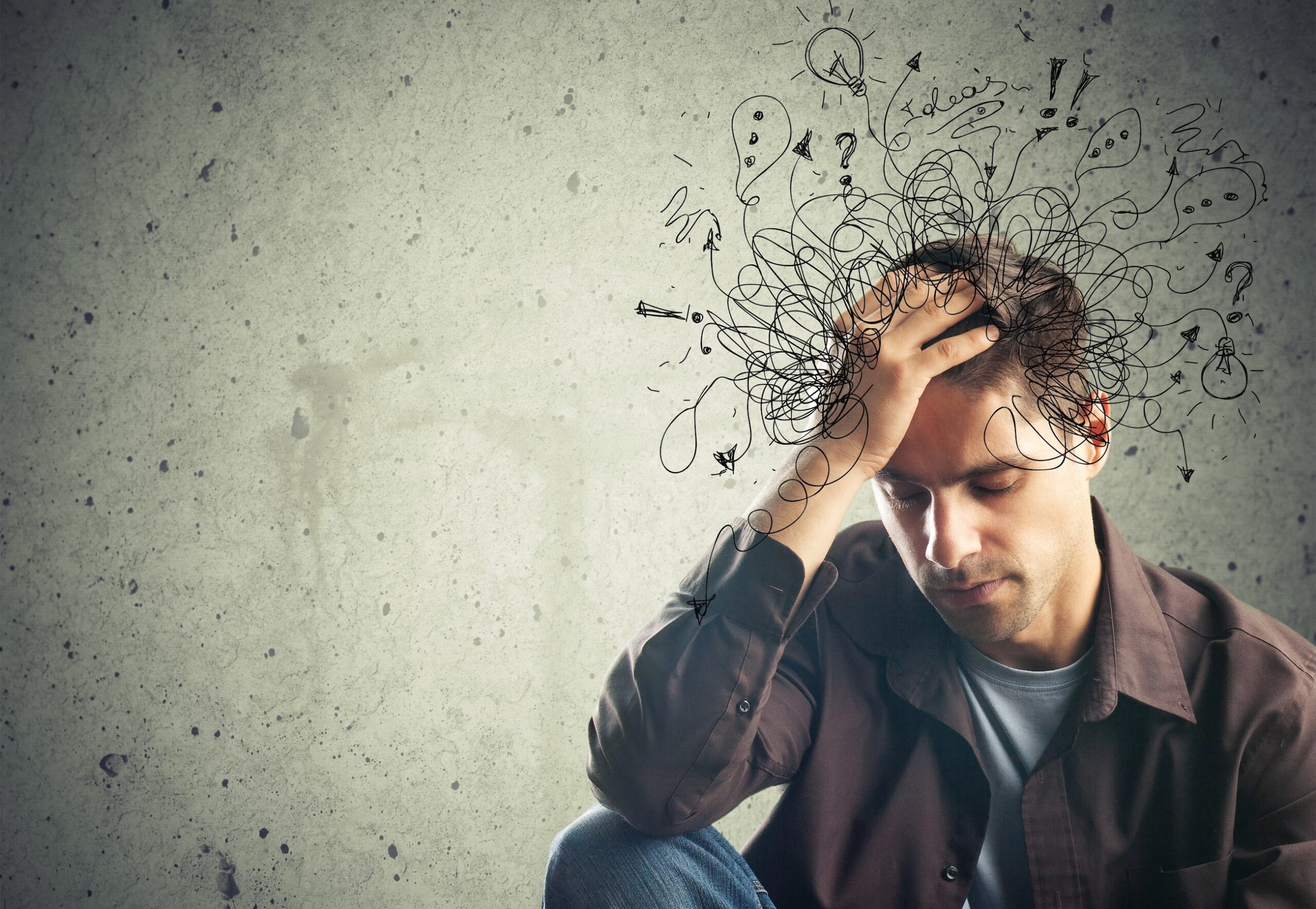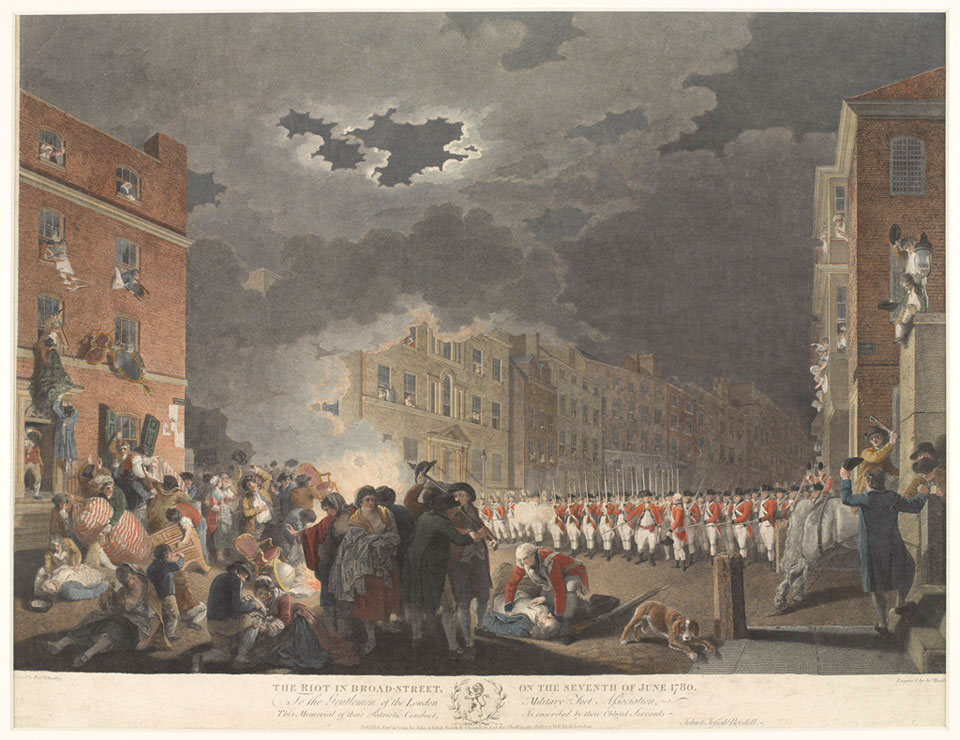We Drink So We Can Trust Each Other
November 21, 2024

The three-martini lunch, once standard, turned scandalous in the seventies, hastily replaced by light beer and wine coolers. Then came a defiant resurgence of glam cocktails and cigar bars, followed by a wave of sober-curious shaming, and then the triumphant redemption of red wine as healthful. Which was followed—while the applause still roared—by a firm retraction, and the branding of all booze as bad for us.
No way am I giving it up, not with the election we just had. But why, in a time that feels so ominous, am I craving a substance that will fuzz my brain, slow my reflexes, dull my senses, and blur my focus?
That is precisely the question Edward Slingerland answers in Drunk: How We Sipped, Danced, and Stumbled Our Way to Civilization. And no, he does not waste this rich exploration of anthropology, history, physiology, culture, and human relationship just to say that alcohol numbs the pain. (Though it can, for a minute.) He sees a far higher role for mild intoxication as a facilitator of creativity, relationship, and civic trust.
“The world’s oldest extant recipe is for beer,” he reminds us. Pottery jars dug up in the Orkney Islands date back to the Neolithic era and probably contained booze made from oats and barley. Brewing vats 12,000 years old have been excavated in eastern Turkey. One civilization after another has found a way to intoxicate itself.
Giddy at the proof, Slingerland tells us how far tribes in pre-colonial Mexico traveled just so they could make liquor during the brief season of the cacti fruit. How desperate drinkers fermented shoe leather or insects or mare’s milk. How people in Central America dried the skin of poisonous toads, with its hallucinogenic secretions, and smoked it. “Or, if you’re in a hurry, you can also simply pin the toad down and lick it.”
This guy would be fun at a party. Beneath the drollery, though, he is dead serious about his proposition. You would think humans would evolve away from intoxicants, given how much damage they can do. Ergo, getting drunk must have helped “individuals to survive and flourish, and cultures to endure and expand.”
I get that alcohol relaxes us and can temporarily ease worry, guilt, shame, fear, almost any negative emotion except perhaps rage. And remembering how the wine at Babette’s Feast softened age-old feuds, I might have to include at least ancient rage. Drinking disinhibits, letting writers and artists create more freely—that, too, I understand. (The outcome depends on just how much disinhibition, and whether the project required a tighter control.) But Slingerland solves a different puzzle for me: why intoxication builds trust.
I have long wondered why my friends and I ask one another, “Are we drinking?” before ordering beverages. Why I hesitate to order a glass of wine if my dinner partner is drinking iced tea—yet order wine despite a pounding sinus headache if everyone else is drinking. So high school of me. According to Slingerland, though, the wine should take me back even earlier than high school.
“Human adults need to be able to access childlike traits,” he says, if we are to be creative and trusting. My unfashionable glass of merlot will kick my prefrontal cortex to the sidelines, where I can ignore its loud cheers for grim efficiency and logic. “Dionysus appeals to the more ancient, primitive regions of our brains, those dedicated to sex, emotions, movement, touch.” Slow down the rational, analytical prefrontal cortex, and I will loosen up, becoming more playful, imaginative, emotional, trusting. Less inhibited. More receptive and flexible. More tolerant and open.
He cites an experiment at Indiana University in which every group was given something that looked and tasted like a vodka tonic with lime juice. Group One was told it was a vodka tonic, and it was. Group Two was told the same thing but given plain tonic water with lime. Group Three was told they were drinking a virgin cocktail but handed a drink spiked with vodka. And Group Four was told it was a virgin cocktail and it was. The results? Groups One and Three had lower anxiety levels and reported feeling more cheerful after the experiment than the other groups. Group Two showed no placebo effect at all. Only the physical presence of the alcohol made that happy difference.
If you want to glue society together, you need a way to get people to relax and trust one another, simple as that. Humans “are apes, evolved to cooperate only in a limited way with close relatives and perhaps fellow tribe members,” Slingerland notes. We are “acutely alert to the dangers of being manipulated, misled, or exploited.” Yet compared to other primates, we are “bizarrely tolerant of strangers, open to new experiences, ready to play.” That makes us vulnerable. But once assured that whoever we are with is equally disinhibited, we grow fond of each other, become “drinking buddies.” We know it is harder to lie or fake it when drinking. We trust what we deem authentic and spontaneous, and we know whiskey and wine act as truth serums. In vino veritas.
Hence the long drunken business dinners the Chinese use to negotiate deals. Hence the barbarian tribes of Germany running every big decision through the gauntlet of drunken communal opinion, convinced “that at no time is the mind more open to simplicity of purpose or more warmed to noble aspirations.” And hence the general reluctance to be the only one drinking, the only one who is unguarded.
There are other ways to create bonds, of course; booze is just a temporary shortcut, and a dangerous one. Sloppy-drunk goes a gulp too far, dissolving whatever trust you have just established. Which may be why the ability to hold one’s liquor is a common rite of passage, even a test of character. Nothing miffs me more than someone who, if I am leaving a party alone, asks with trendy solicitousness, “Are you okay to drive?” One glass of the aforementioned merlot does not render me incapable.
The real goal of drinking has nothing to do with drinking; it is to shake free from self-consciousness and relax the rational mind’s stranglehold on our imagination. “Sobriety diminishes, discriminates, and says no,” wrote William James. “Drunkenness expands, unites, and says yes.” He must have sighed as he added, “It is part of the deeper mystery and tragedy of life that whiffs and gleams of something that we immediately recognize as excellent should be vouchsafed to so many of us only in the fleeting earlier phases of what in its totality is so degrading a poisoning.”
Sip it slowly, with great care. Or find another way to trust.
Read more by Jeannette Cooperman here.







